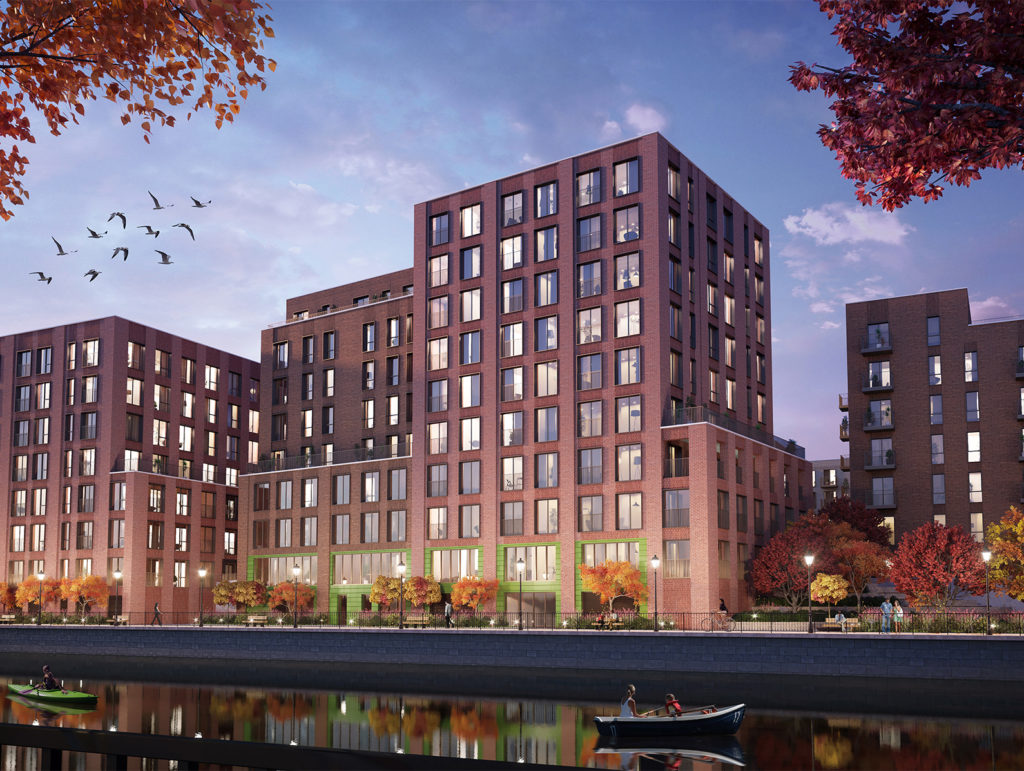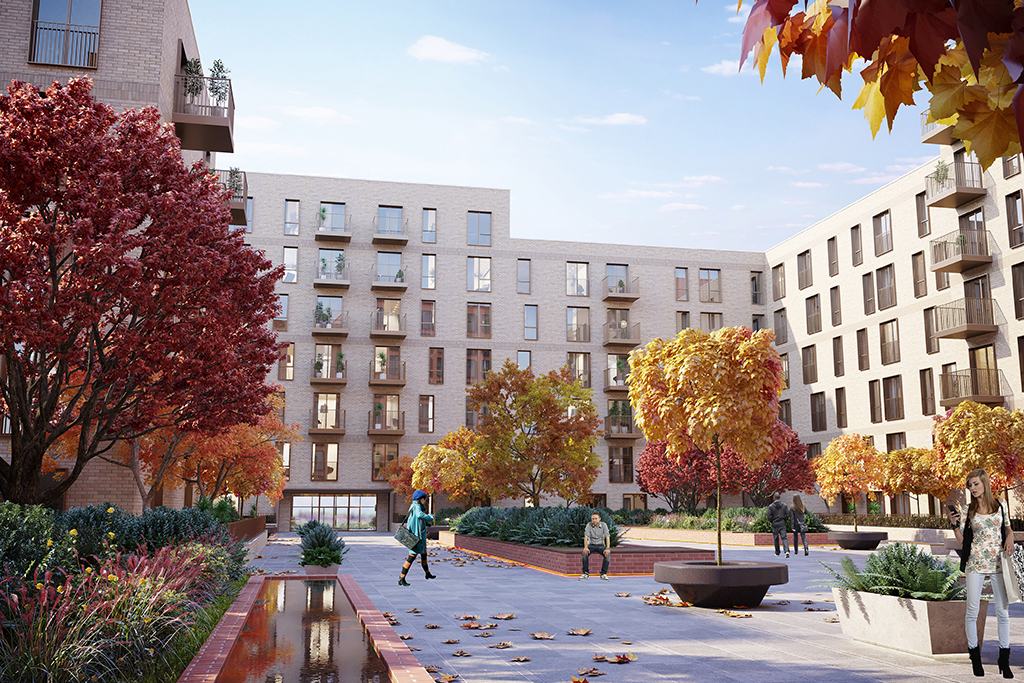2020 was no doubt a difficult year for many. As if Brexit hadn’t been enough for UK property investors to worry about, Covid-19 brought even more uncertainty to the market and further threat of financial crisis.
With widespread job losses, economic turmoil, and worldwide uncertainty, those who had been considering buying an investment property in 2020 were suddenly second-guessing their plans.
Just a few months into the pandemic, however, and the property investment market was thriving. So in what ways did the property investment market shine during the coronavirus pandemic, and is now still a good time to invest?
If you’re a property investor who’s still asking ‘should I invest in property during Covid-19?’, read our guide to property investment and covid-19, with information on how the real estate market has adapted throughout the pandemic.

Contents
- How has Covid-19 Affected the Property Market?
- Should I Invest in Property During Covid-19?
How Has Coronavirus Affected the Property Market in the UK?
For a better understanding of property investment and Covid-19, let’s take a look at what’s happened to the real estate market in the UK since the beginning of the Coronavirus pandemic.

The Rise of Virtual Tours
As a result of the UK-wide lockdown introduced in March and new social distancing guidelines, some changes were made to the real estate market in the UK and the way it operated.
Due to a temporary ban on in-person property viewings, property companies around the country started to utilise technology and introduce virtual property tours.
These virtual tours have been carried out with the help of VR technology and computer-generated imagery. Investors can either view property via a VR headset if they have one or take a virtual viewing using their PC, smartphone, or another device.
This method of advertising properties had already been commonly used by overseas investors prior to the pandemic, particularly those buying off-plan property.
Now, virtual viewings have become an integral part of the real estate market and have helped keep the market alive by boosting activity.
The Stamp Duty Tax Holiday
In a bid to strengthen the UK property market and economy during uncertain times, a short-term tax break was announced in July 2020. Lasting until March 2021, the stamp duty tax holiday allowed those buying property to take advantage of attractive tax savings.
Those buying a home were able to avoid tax altogether on properties with a value of £500,000 or less, while the stamp duty tax that buy to let investors were required to pay was reduced.
During this break, those purchasing a buy to let property were taxed just 3% on properties worth up to £500,000 instead of 6%.
Overall, buy to let investors have been able to save as much as £15,000 in tax during the stamp duty tax holiday. This has no-doubt fuelled property market demand and led to a surge in house prices.

Rising UK Property Market Prices
Much to a lot of people’s disbelief, the UK property market saw house prices rise quite significantly throughout the Covid-19 pandemic.
Many predicted that property investment and Covid-19 would not go hand in hand, anticipating an ongoing decrease in market activity and lower house prices.
And while property market activity did suffer slightly during the very start of the pandemic, prices rose gradually throughout the coming months until September, when they hit new record levels.
Prices in September had grown by 5% year-on-year due to pent-up demand, the stamp duty tax holiday, and changing homeowner attitudes. By October, property prices rose even further with a 5.8% growth, the highest annual increase since 2015.
Then, by November, prices had increased yet again, ending up 6.5% higher than they were in the previous year. A 0.9% month-on-month rise was also recorded. By January, it was reported that over 2020, house prices in the UK rose by 7.3% on average, according to Nationwide – a six-year high.
One reason that property market activity has been so strong during the coronavirus pandemic is down to investment. The stock market took a turn for the worse back in March 2020, and this led many investors to exit their stocks and shares investments and instead invest in property.
Mortgage Changes
To adapt to shifts in the property market, mortgage lenders made some changes during the Coronavirus pandemic. One of the most significant changes made was the dramatic reduction in 95% mortgage availability.
While in the past, mortgage lenders have allowed 5% deposits from those buying residential property, increased housing demand meant that the minimum required deposit changed to 10 – 20%.
This meant that purchasing property became a lot more difficult for first-time buyers, which led to increased rental market demand.
Another way that mortgages have changed during this period is with interest rates. Interest rates have reached historic lows, which is another factor that has impacted the property market and encouraged housing market activity.

Real Estate Market Trends
Throughout 2020, the UK real estate market saw a lot of demand from both homeowners and renters. Certain properties became more in demand than others, and some clear property market trends were noticed.
One significant trend was the surge in homeowners looking to buy properties outside of city centres and in more rural areas. Last year, a survey from Rightmove in August found that enquiries for village properties were up by 126%.
The rental market also experienced a shift, with more people looking for rental accommodation that best fit their new remote working lifestyle.
Apartments with a garden, balcony, or terrace were more in-demand, along with flats featuring high-speed internet and a place to set up a home office to facilitate working from home.
Should I Invest in Property During Covid-19?
So, with the events of the last year in mind, is it a good idea to buy an investment property during the Covid-19 pandemic?
Here are some of the reasons why investors are urged not to shy away from making a buy to let purchase during this time.

Great Investment Opportunities Available
If you’re asking, ‘should I invest in property during Covid-19?’, one of the first things you should do is explore the market for the latest opportunities. The likelihood is that you’ll find some of the best deals in recent years when looking in the right places.
During the pandemic, property developers anticipated a lot of uncertainty from buyers and introduced a number of discounts and deals to encourage investment activity.
Some of the properties currently available, such as Merchant’s Wharf in Manchester, are up to 55% below market value, while other properties offer assured rental yields for periods as long as three years. If you’re keen to take advantage of deals like these, act fast, as they won’t be around forever.
Promising UK Property Market Predictions
The latest news coverage on the future of the property market for 2021 suggests that we may see a slow in property price growth following the end of the stamp duty tax holiday.
Nonetheless, further predictions for the UK housing market over the coming years suggest that record-breaking growth is still on the horizon.
The residential market forecast by Savills is looked upon by many each year as it contains updated predictions on regional house price growth. During October 2020, the Savills report was updated and saw a 20.4% growth expected for the UK on average by 2024.
During this period, the highest growth is expected in the North West region with a 27.3% increase in average property prices, followed by 25.4% growth in Scotland.
Any temporary market slowdowns that we could see in 2021 will only make property prices even more accessible to investors looking to take advantage of the huge capital growth rates ahead.

If you’re interested in investing in property during this time, contact Investment Property Agent today to find out about our available units. We’re currently offering some unmissable buy to let deals such as assured rental yields as high as 8% and enticing below-market prices. Don’t miss out!
This content on property investment and Covid-19 was written in January 2021.
